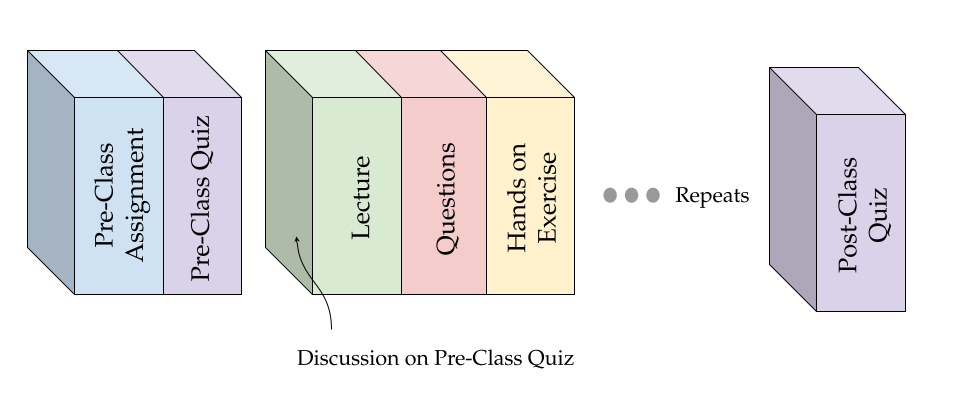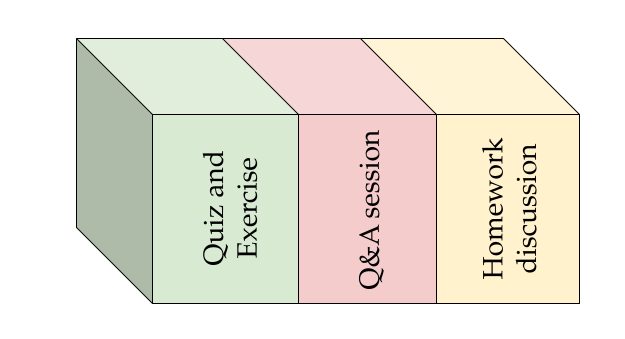Sunny day Sweepin’ the clouds away, On my way to where the air is sweet, Can you tell me how to get, How to get to Sesame Street?
Welcome to AI-3. The objective of this module is to provide fundamental understandings of the latest language models built using deep learning architectures.
You will start with the traditional language models, learn about word embeddings, attention and then move on to transformer models.
At the end of this module, you will be able to build efficient language models, and tell how well they are performing.
This page introduces you to the team, the basic instructions, the schedule and various elements of our class.
The Team
Dr. Pavlos Protopapas

- Scientific Director of the Institute for Applied Computational Science (IACS).
- Teaches Introduction to Data Science (CS109a), Advanced Topics in Data Science (CS109b) and Advanced Practical Data Science (AC215).
- He is a leader in astrostatistics and he is excited about the new telescopes coming online in the next few years.
You can read more about him here.
Teaching Assistants
Click on avatars of the TAs to know more about them.



The Coursework
We have very carefully designed the coursework to give you, the student, a wholesome learning experience.
Each week shall include:
- 2 Sessions
- 2 Labs
- Office hours
Session - What to expect

Before the session begins, students are expected to complete a pre-class reading assignment and and attempt a quiz based on the same.
A session will have the following pedagogy layout which will be repeated three times:
- Approx. 15 minutes of live online instruction followed by approx 15 minutes of Q/A + Quiz + Exercises.
- Sessions will help students develop the intuition for the core concepts, provide the necessary mathematical background, and provide guidance on technical details.
- Sessions will be accompanied by relevant examples to clarify key concepts and techniques.
After the session, students are expected to complete a short post-class quiz based on the principal concepts covered in class.
Lab - What to expect

A lab is a TA driven one hour session that is divided into 3 major parts.
- Each lab begins by revisiting the Quizzes and Exercises done in the previous lecture session.
- After discussing exercises, we will have a semi-formal Q/A session. All doubts pertaining, but not limited, to the previous session, and homeworks are welcome.
- The last part of the labs deals predominantly with the upcoming homeworks. It is directed towards giving a brief overview of the homework problem. We will discuss some code to help you get started.
Course Content

The Class

Lecture Sessions:
-
Wednesday:
7:00 PM - 8:30 PM IST [9:30 AM - 11:00 AM EST] -
Saturday:
7:00 PM - 8:30 PM IST [9:30 AM - 11:00 AM EST]
Lab Sessions:
-
Thursday:
7:00 PM - 8:30 PM IST [9:30 AM - 11:00 AM EST] -
Sunday:
7:00 PM - 8:30 PM IST [9:30 AM - 11:00 AM EST]
Office hours:
- Monday:
7:00 PM - 8:00 PM IST [9:30 AM - 10:30 AM EST]
Please check your mail for more information regarding the platform and the course.
Course Pre-Requisites
Your are expected to have a working knowledge of python, along with these three libraries:
- Numpy
- Pandas
- Tensorflow.keras
All exercises in this course will be done in jupyter notebooks.
Note: Prior knowledge of high level machine learning libraries such as keras is necessary for this module
Textbooks
You are advised to follow the following two e-books for reference during the course:
-
Speech and Language Processing, Dan Jurafsky and James H. Martin
-
Natural Language Processing, Jacob Eisenstein
Before you begin the course, we have prepared for you a simple exercise to ensure your proficieny of the above libraries.
This will help you assess your preparedness for the course, and will also help you familiarize yourself with the platform.

Diversity & Inclusion
We actively seek and welcome people of diverse identities, from across the spectrum of disciplines and methods since Artificial Intelligence (AI) increasingly mediates our social, cultural, economic, and political interactions [1].
We believe in creating and maintaining an inclusive learning environment where all members feel safe, respected, and capable of producing their best work.
We commit to an experience for all participants that is free from – Harassment, bullying, and discrimination which includes but is not limited to:
- Offensive comments related to age, race, religion, creed, color, gender (including transgender/gender identity/gender expression), sexual orientation, medical condition, physical or intellectual disability, pregnancy, or medical conditions, national origin or ancestry.
- Intimidation, personal attacks, harassment, unnecessary disruption of talks during any of the learning activities.
Reference:
[1] K. Stathoulopoulos and J. C. Mateos-Garcia, “Gender Diversity in AI Research,” SSRN Electronic Journal, 2019 [Online]. Available: http://dx.doi.org/10.2139/ssrn.3428240.
Logistics - What you need to begin?
We assume you have a Univ.AI account, created when you signed up at course.univ.ai. If not, email programs@univ.ai.
Education software we use
- Our lectures and labs are carried out via Zoom (install instructions).
- Quizzes & exercises will be conducted on the digital learning platform Ed.
- Ocassionally, we may conduct in-class contests on kaggle. Please register on kaggle and familarize yourself with it, if you haven’t already done so. This is a short video that will help you learn how to use kaggle.
All exercises and homeworks in this course will be done in jupyter notebooks. This link will help you setup jupyter lab and get you acquianted with jupyter notebooks.
Our module policies around collaboration and grading are listed here. Our expectations of you are also laid out in that document.
Parting note
As you will learn in this course, language models are not just about writing efficient algorithms.
It requires proficiency in critical thinking, ideation & presentation, along with strong foundations in statistics, computer science & mathematics.
Keeping that in mind, you are adviced to give your full active attention to every session, homework & exercise.
We wish you best of luck for your AI journey.
